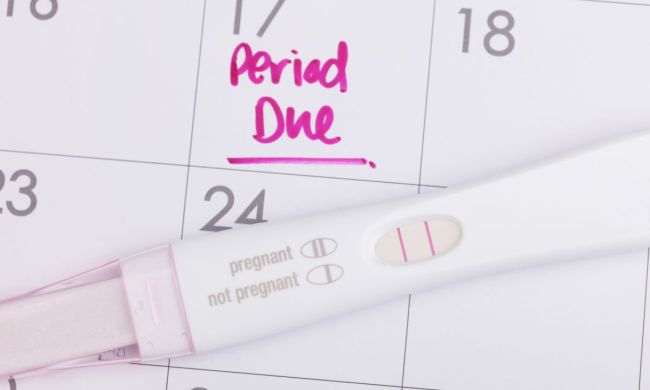
Although the road to parenthood is filled with exciting milestones morning sickness isn’t one of them! Pregnancy nausea and morning sickness can certainly put a damper on an otherwise exciting time in one’s life. Between a half to two-thirds of pregnant people will experience some form of morning sickness, typically during the first trimester.
While most women tend to overcome morning sickness by their second trimester, some live with it throughout the whole pregnancy. The good news is there are natural remedies for nausea and morning sickness that you can try at home to get some relief and hopefully, enjoy the remainder of your pregnancy. Here are some natural remedies for nausea and some tips for relieving morning sickness
Ginger

There is a reason women drink ginger ale during their pregnancy. The key ingredient in it is ginger, which is a popular natural remedy for nausea. Alina Petre, a registered dietician and contributor to Healthline, says that while the way ginger works is not yet understood, experts believe compounds in it may work similarly to nausea medications.
Certain studies have even found that it can be as strong as prescription medication commonly prescribed for nausea, but with fewer side effects. Ginger is a great remedy to help reduce nausea due to pregnancy. You can find it in dried form and in herbal teas.
Eat small meals

Instead of eating three large meals a day, try to stick to five to six small meals a day. Lori Bregman, doula and life/pregnancy coach writes for MindBodyGreen and says, “Make sure to have a balance of carbs and protein to maintain blood sugar.” Small meals will reduce the risk of vomiting because you are not overloading your stomach. In the morning, you especially want to eat a good meal.
Keep some crackers on your nightstand so they are there for you in the morning. If you haven’t eaten breakfast yet, all your stomach has to go on are its acids, which add to the nausea. Snacking on a few crackers before you get out of bed, gives your stomach something to work on, thus decreasing the acidity.
Acupressure bands

These are often called “sea bands,” and they work by putting pressure on the inside of your wrist, on the “pericardium 6.” Cathy Wong, nutritionist and writer for Verywell Family, explains, “It is a wristband with a plastic button that puts pressure on the p6 point inside of the wrist. They usually cost less than $10 for a pair and can be found online or in some health food stores.” Typically, when you put them on, they begin to work immediately. It’s suggested that you put the band on before you get out of bed in the morning.
Peppermint

A study done in 2014 suggests that just the scent of peppermint can help the feeling of nausea. Its leaves and its oil are the most helpful when it comes to using peppermint for pregnancy nausea. Peppermint tea is great, as it soothes the stomach and has a numbing effect to get rid of nausea. If tea is not your thing, it also comes in capsules as well. You can always have peppermint candy handy as well. As a precaution, though, if you are living with gastroesophageal reflux disease (GERD), it is best to avoid peppermint.
Lemon aromatherapy

Citrus smells, especially lemon, may help reduce pregnancy sickness or nausea. In a study conducted in 2014, pregnant patients experiencing nausea were given lemon essential oil to smell, and the results showed lemon scent can be effective in reducing pregnancy-related nausea. Cutting open a lemon or scratching a lemon peel and smelling it may work like lemon aromatherapy because doing so releases the essential oil into the air.
Light exercise

You might have to clear this one with your doctor first. But doing some light exercise can actually help to fight nausea. Melissa Conrad Stöppler, M.D, tells MedicineNet, “Regular exercise may help control morning sickness symptoms and other mild discomforts of early pregnancy.” Some light exercise includes walking, so you can take advantage of that and take a walk around your neighborhood or local park.
Avoid nausea triggers

Sometimes, a pregnant woman gets triggered by certain smells or poor air quality. It’s best to avoid heat and humidity, as well as heavy perfumes or something with a strong smell (for some women that’s food). Ciara Staunton, NP-C, owner of Staunton Primary Care told SingleCare, “Examples of some triggers include stuffy rooms, odors (e.g., perfume, chemicals, food, smoke), heat, humidity, noise, and visual or physical motion.” So, especially in the summer, you will want to avoid the humid and hot weather and stay in the air conditioning as much as possible.
Drink water

Water is so important, especially when you are pregnant. You will want to stay hydrated as much as you can. Drinking six to eight 8-ounce glasses of water is key. While some women may think that sports drinks are necessary, the University of Iowa Hospitals & Clinics advises, “Electrolyte supplementation such as Gatorade is not necessary.” However, if you do choose to drink one, they advise that you drink the low-sugar and low-calorie variety. Having a water bottle handy is a good idea to make sure that you keep hydrated.
What to do if natural remedies don’t work

Unfortunately for some women, natural remedies don’t help with their morning sickness. This can not only be frustrating but unhealthy as it can lead to dehydration and weight loss. About 1% of women will experience hyperemesis gravidarum, a severe form of morning sickness that needs to be treated by a doctor.
Even if your morning sickness isn’t as severe as hyperemesis gravidarum but natural remedies aren’t giving you any relief, you should speak to your doctor. There are anti-nausea medications that are safe during pregnancy they can prescribe that can bring relief. Although morning sickness is common, you don’t have to suffer throughout your pregnancy. Speak to your healthcare provider to find the solution that’s best for you.
Morning sickness, or “pregnancy sickness” is normal, but it can be quite unbearable and debilitating. You’ll want to make sure to speak to your doctor if it is getting too much for you to handle, especially if it persists past the first trimester. Otherwise, if you are pregnant and you are having bouts of nausea, these tips may be able to give you some relief.


